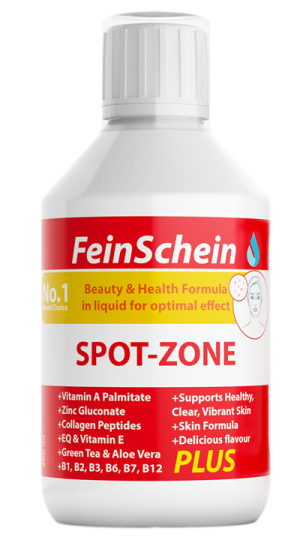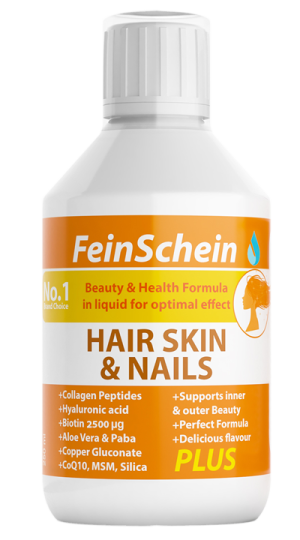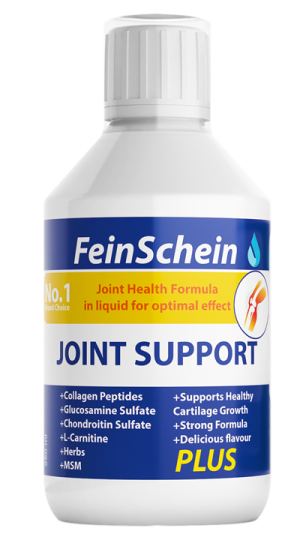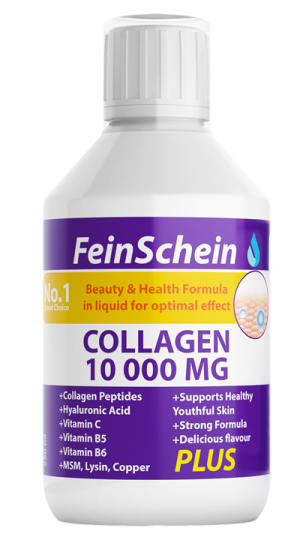How To Use
15ml for age 5yrs and above – 30ml for 10yrs old and above once a day to be taken directly or added to 20 ml water or juice.
Flavour: Orange
Vitamin A
Protects against UV damage
Encourages healthy skin and cell production
Vitamin C
- Control and help cure the common cold
- Enhance the size, number and motility of white blood cells
- Help asthma sufferers
- Help with wound healing
- Help with the expulsion of toxic chemicals from the body
- Lower blood cholesterol
- Supports immune system
- Essential for a healthy body
Vitamin D
Vitamin D is a fat-soluble vitamin that is naturally present in very few foods. It is also produced endogenously when ultraviolet rays from sunlight strike the skin and trigger vitamin D synthesis.
Vitamin D is essential for promoting calcium absorption in the gut and maintaining adequate serum calcium and phosphate concentrations to enable normal mineralisation of bone and bone growth. Without sufficient vitamin D, bones can become thin, brittle, or misshapen. Vitamin D sufficiency prevents rickets in children and osteomalacia in adults. Together with calcium, vitamin D also helps protect older adults from osteoporosis.
Vitamin D has other roles in human health, including modulation of neuromuscular and immune function and reduction of inflammation. Many genes encoding proteins that regulate cell proliferation, differentiation, and apoptosis are modulated in part by vitamin D.
Vitamin E is a potent antioxidant, preventing the fatty cell membranes from becoming oxidised, and therefore helping to prevent blood clots and thrombosis. It also has anti-inflammatory actions, improving wound healing, and is commonly used as a supplement to improve dry skin and treat the symptoms of PMS.
Research suggests that this vitamin is useful for heart health and general immune function.
Signs of deficiency include easy bruising, slow wound healing, varicose veins, loss of muscle tone and infertility.
Vitamin B´s
All B vitamins, including vitamin B6, play an important role in a range of physical and psychological functions. They are most known for helping to maintain a healthy metabolism, nerve function, liver function, skin health, eye health, as well as help to boost levels of energy.
Vitamin B1
Thiamine is also called vitamin B-1. It’s an essential nutrient that helps the body turn food into energy.
Vitamin B2 is responsible for maintaining healthy blood cells, helping to boost energy levels, facilitating in a healthy metabolism, preventing free radical damage, contributing to growth and protecting skin and eye health.
Vitamin B3 (and general info on vitamin B´s)
Vitamin B3 is one of 8 B vitamins. It is also known as niacin (nicotinic acid) and has 2 other forms, niacinamide (nicotinamide) and inositol hexanicotinate, which have different effects from niacin.
All B vitamins help the body to convert food (carbohydrates) into fuel (glucose), which is "burned" to produce energy. These B vitamins, often referred to as B complex vitamins, also help the body metabolize fats and protein. B complex vitamins are necessary for healthy skin, hair, eyes, and liver. They also help the nervous system function properly.
Niacin also helps the body make various sex and stress-related hormones in the adrenal glands and other parts of the body. Niacin is effective in improving circulation and reducing cholesterol levels in the blood.
All the B vitamins are water-soluble, meaning that the body does not store them.
Niacin has been used since the 1950s to lower elevated LDL ("bad") cholesterol and triglyceride (fat) levels in the blood and is more effective in increasing HDL ("good") cholesterol levels than other cholesterol-lowering medications.
Because niacin lowers LDL and triglycerides in the blood, it may help prevent atherosclerosis (hardening of the arteries). Some evidence suggests that niacinamide (but not niacin) might help delay the onset of insulin dependence (in other words, delay the time that you would need to take insulin) in type 1 diabetes. In type 1 diabetes, the body's immune system mistakenly attacks the cells in the pancreas that make insulin, eventually destroying them. Niacinamide may help protect those cells for a time, but more research is needed to tell for sure.
One preliminary study suggested that niacinamide may improve arthritis symptoms, including increasing joint mobility and reducing the amount of nonsteroidal anti-inflammatory drugs (NSAIDs) needed. It may also lower the risk of Alzheimer's disease.
Vitamin B5 Pantothenic acid is important for our bodies to properly use carbohydrates, proteins, and lipids and for healthy skin.
Vitamin B6
- Vitamin B6 helps maintain healthy brain function.
- The vitamin plays a key role in synthesizing antibodies that are needed to fight various diseases.
- Vitamin B6 helps in maintaining normal nerve function. It plays a crucial role in the synthesis of neurotransmitters such as dopamine and serotonin. It also assists normal nerve cell communication.
- The vitamin helps in forming red blood cells.
- It helps in breaking down and digesting proteins. So, the higher the protein intake, the greater is the requirement of vitamin B6.
Vitamin B7
vitamin B7 is an essential part of the B vitamin complex. Just like the other B vitamins, biotin is water-soluble and is closely related to energy and metabolism. More specifically, biotin is related to the metabolism of energy substrates like fat and carbohydrate.
Humans are unable to create biotin within the body so it must be gained from food or by intestinal bacterial synthesis; this classes it as part of the essential vitamin group.
Vitamin B9
Folic Acid is a water soluble member of the vitamin B complex. It is essential to the formation of red blood cells and can aid in protein metabolism.
Folic Acid has been said to be able to lower homocysteine levels and reduce the risk of heart disease, protect against birth defects, improve lactation and protect against intestinal parasites and food poisoning.
Vitamin B12 is required for the proper function and development of the brain, nerves, blood cells, and many other parts of the body.
Calcium is crucial in growing new bone and maintaining bone strength.
Magnesium is needed for more than 300 biochemical reactions in the body. It helps to maintain normal nerve and muscle function, supports a healthy immune system, keeps the heart beat steady, and helps bones remain strong. It also helps regulate blood glucose levels and aid in the production of energy and protein.
Zinc
Zinc is needed for the proper growth and maintenance of the human body. It is found in several systems and biological reactions, and it is needed for immune function, wound healing, blood clotting, thyroid function, and much more. Meats, seafood, dairy products, nuts, legumes, and whole grains offer relatively high levels of zinc.
Zinc plays a key role in maintaining vision, and it is present in high concentrations in the eye. Zinc deficiency can alter vision, and severe deficiency can cause changes in the retina (the back of the eye where an image is focused).
Iron
Iron is an important component of hemoglobin, the substance in red blood cells that carries oxygen from your lungs to transport it throughout your body.
Selenium works as a powerful antioxidant in the body. Antioxidants are substances that slow or prevent cell damage by neutralizing free radicals.
Selenium protects against free radicals and oxidative stress.
Manganese is an essential nutrient involved in many chemical processes in the body, including processing of cholesterol, carbohydrates, and protein. It might also be involved in bone formation.
Chromium
Chromium might help keep blood sugar levels normal by improving the way our bodies use insulin.
Potassium plays a role in every heartbeat. A hundred thousand times a day, it helps trigger your heart to squeeze blood through your body.
It also helps your muscles to move, your nerves to work, and your kidneys to filter blood.
Iodine
Around 60% of the iodine in the human body is stored in the thyroid gland. Its health benefits play a very important role in the normal functioning of the thyroid gland, which secretes thyroid hormones that control the base metabolic rate of the body.
Choline is also a precursor of acetylcholine, a neurotransmitter vital to nerve and muscle function, and a component of lecithin, which is critical to normal liver metabolism. Without adequate dietary intake of choline, there is a higher-than-normal risk of chronic liver damage and eventual liver failure.
Inositol might balance certain chemicals in the body to possibly help with conditions such as panic disorder, depression, obsessive-compulsive disorder, and polycystic ovary syndrome.
PABA is an antioxidant that protects against free radicals.
It is believed that lutein in the macula block blue light from reaching the underlying structures in the retina, thereby reducing the risk of light-induced oxidative damage that could lead to macular degeneration (AMD).
Coenzyme CoQ10 is an antioxidant and protects against free radicals.
Citrus-Bioflavonoids
- Antioxidant protection
- Circulatory health
- Immune system support







